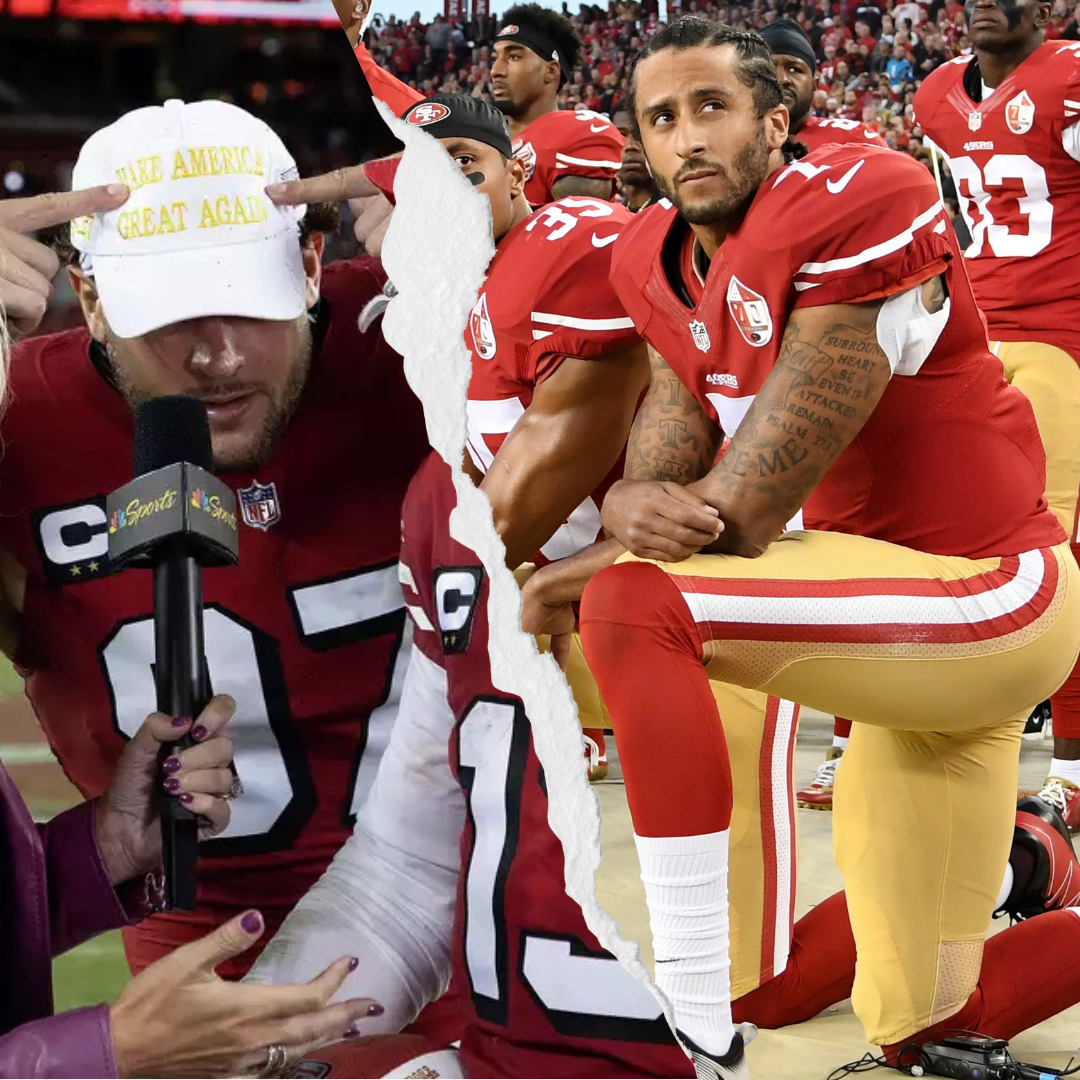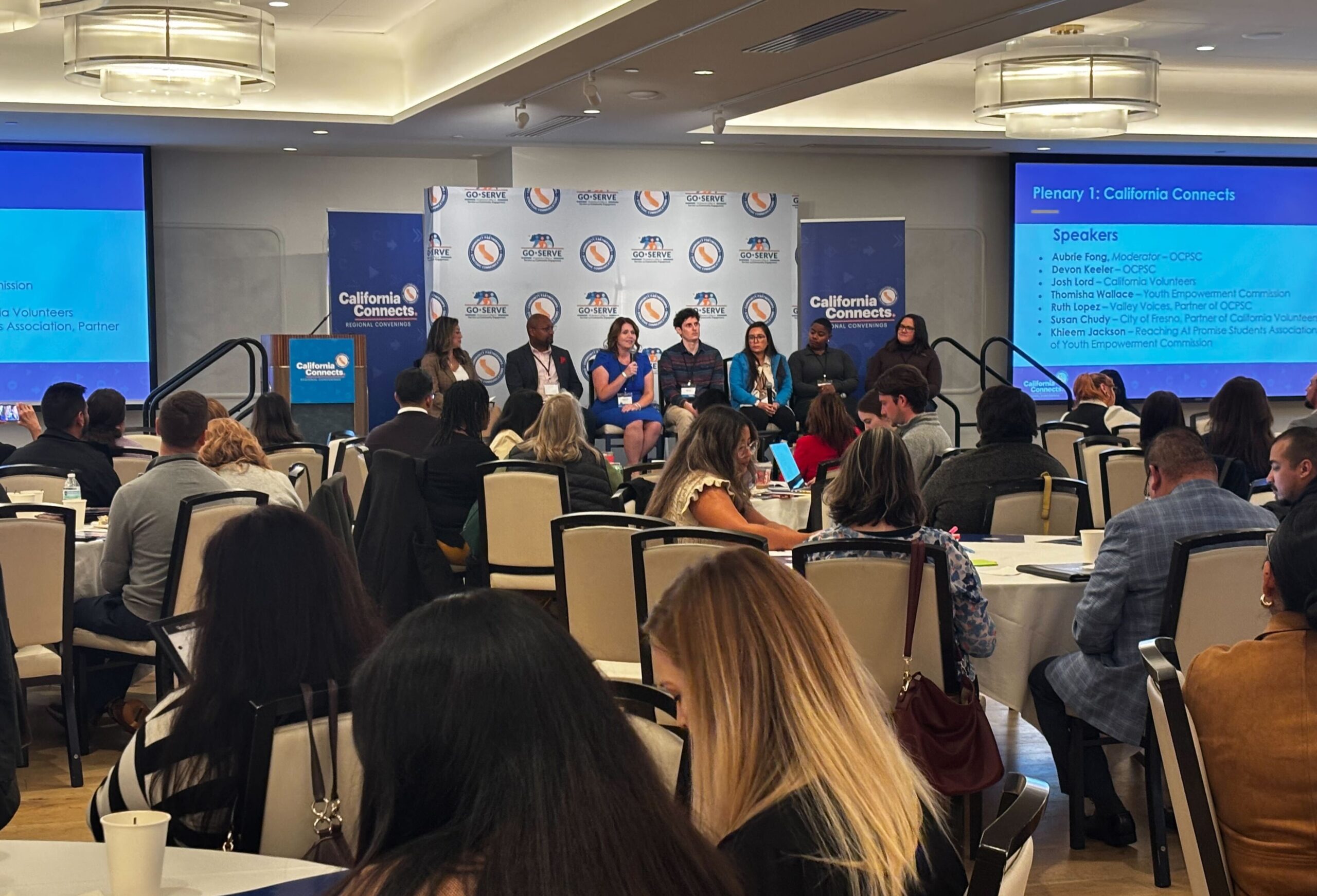
On Oct. 27, 2024, San Francisco 49er defensive lineman Nick Bosa was spotted wearing a Make America Great Again hat during a post-game interview. After a win over the Dallas Cowboys, Bosa crashed an interview with his teammates Brock Purdy, George Kittle, and Isaac Guerendo.
According to ESPN, Bosa’s choice to wear the hat violated league rules prohibiting players from “displaying personal message or non-sponsored branding at any point throughout a game day when visible at the stadium and TV audience, including postgame interviews in the locker room or on the field.” Despite violating league rules, not much buzz was made regarding his actions.
Bosa knew that a fine would result from these actions, however, he stated, “I haven’t got one yet, but if it comes, it comes. It was well worth it.” Two weeks after the incident, and coincidentally after the presidential election, Bosa was fined $11,255. According to NBC Sports, the league wanted to “avoid having any punishment of Bosa become a last-minute issue in the campaign.”
This event is significantly different from how Colin Kaepernick was treated after his kneeling protest against racial inequality and police brutality, which sparked an uproar and controversy regarding NFL players and their involvement in political expression.
During President Trump’s first term, some players chose to kneel or remain in the locker room during the national anthem. Kaepernick became the face of the controversy surrounding this movement. While he protested against inequality and police brutality, others turned a blind eye or criticized his actions, ultimately leading to him being blacklisted from the NFL. Meanwhile, Bosa faced only a fine for wearing a MAGA hat. The same conservatives who condemned Kaepernick now defend Bosa, citing his actions as an exercise of his First Amendment right.
Despite both players taking a stance on their political affiliations, the consequences they faced were vastly different. The NFL’s response highlights their slow and inconsistent adoption of political statements in sports. In 2020, following the murder of George Floyd, the league was slow to endorse anti-racist messages. During this period, many players felt like they did not have the space to share their opinions. Athletes like Patrick Mahomes, Odell Beckham Jr., and DeAndre Hopkins participated in a video urging the NFL to acknowledge and condemn the “racism and systemic oppression of Black people.” While the league has tried to keep a neutral stance on politics, its players continue to push to have their voices heard without risking their careers.
Both Bosa and Kaepernick made political statements, yet the consequences they faced were vastly different. With President Trump back in office, this raises several questions about how individuals will be held accountable for expressing their political opinions and whether those consequences will be applied equally, regardless of political stance.
Some NFL fans argue that sports is no place for political messaging, but athletes hold powerful and influential platforms that can reach the masses. This begs the question: Do fans truly oppose political statements in sports, or do they simply reject statements that conflict with their own beliefs?
Bosa’s conservative views and the lack of backlash he faced opens a curtain to the double standard in how players are treated when their political opinions challenge, rather than align with, mainstream conservative views.


